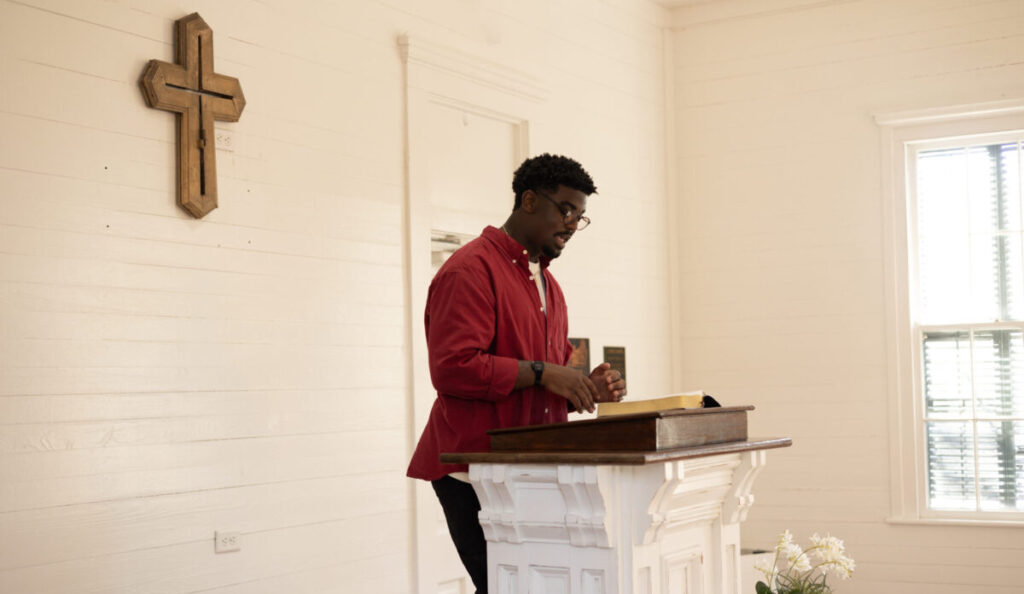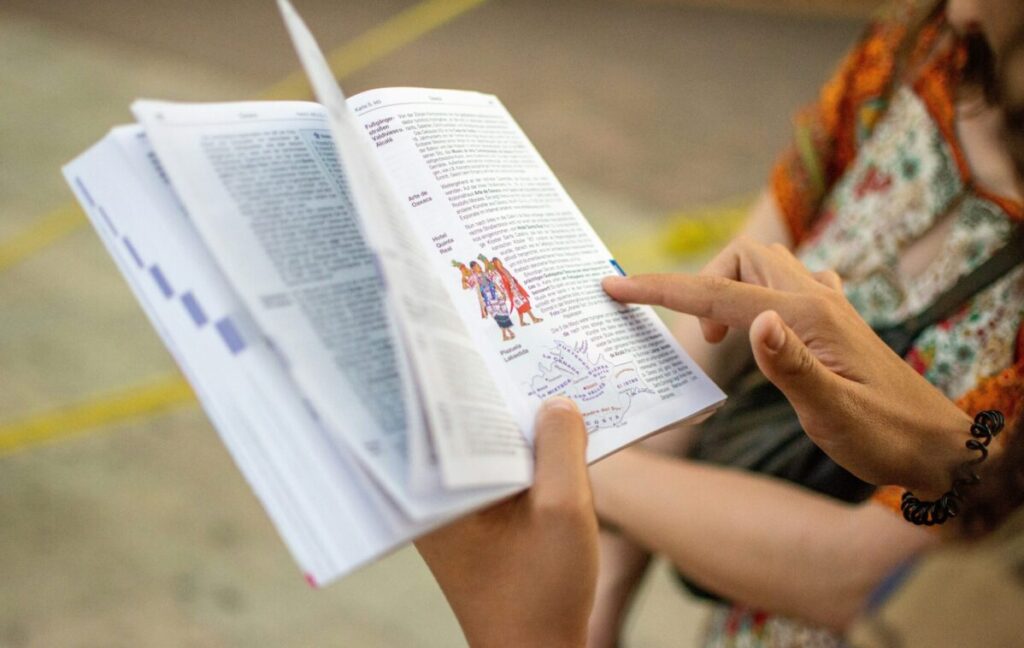Even now, long after he chose Jesus over his wife, Isaak Abayev’s voice is colored with anguish when he speaks of the years he spent struggling between what God was telling him and what everyone else expected.
“Everybody rejected me. My wife’s family thought I had gone crazy. Other relatives just couldn’t understand me because they had always thought of Jesus as the Russian God,” Isaak Abayev, 45, a softspoken former shoe repairman, whose marriage of 21 years eventually ended.
“Until this very day, some people still think I am lost.”
Abayev’s problem is simple. He is a Jewish man who, through a series of what he calls divine revelations, came to believe that Jesus is the Messiah.
In the eyes of many traditional Jews, this makes him a heretic and an idolator, taking part in what they sometimes call “The Silent Holocaust.”
No matter how controversial, Abayev is not quiet about his new faith. He tells any Jew who will listen that Jesus is first and foremost for them and that Jews may synthesize Jewish and Christian traditions and worship as Messianic Jews.
Numbers increasing
When Abayev first started gathering in 1998 with other like-minded Jews from a local charismatic Christian congregation here, there were three people, including himself, meeting in private homes. Now, the Beit Shalom Synagogue numbers about 100 and has its own American Messianic pastor.
It is a pattern repeated throughout the former Soviet Union, in Germany and the United States, as dozens of other congregations of Messianic Jews have sprung up among Russian-speaking Jews. They range from a handful of believers in the Kazak cities of Astana and Karaganda to more than 1,000 in Ukraine’s capital, at Kiev’s Jewish Messianic Congregation.
Although no one has reliable figures, in the 10 years since the collapse of communism, Messianic Judaism has spread quickly among Soviet Jews, who are largely ignorant about the faith of their fathers and, in keeping with communist teaching, often consider themselves part of an ethnic group, not a religion.
Traditional Jews are alarmed enough at the trend to have launched an anti messianic organization in Moscow. With offices in four Soviet cities, the Magen David League, headed by Rabbi Alexander Lakshin, employs 17 people who wage an informational war against Messianic Jews.
“We simply provide the information that the religion that the Messianic Jews promote has nothing to do with Judaism,” said Lakshin, adding that he has recently been getting complaints from rabbis in the eastern reaches of the former Soviet Union. “We are planning to expand our activities to Central Asia in the nearest future.”
Kazakstan’s Messianic Jewish leaders are ready, saying that the days of easy evangelizing are long gone anyway. “Rabbi” Jeffrey, the American leader of the Beit Shalom synagogue, contrasted today’s situation with his arrival seven years ago in the former Soviet Union.
“I saw more Jewish people make professions of faith, answer the altar call, in one night than in 10 years of working in America. Thousands responded in a positive way,” said the pastor, who asked that his last name not be used out of a fear — legitimate — of being refused the Israeli citizenship for which he plans to apply.
“These people were not inoculated from the gospel. Now, the Chabad (Lubavitch) have given them their injections,” he said, referring to the ultra-Orthodox Jewish group with which the Magen David League and Almaty’s synagogue are associated.
The city has an estimated 10,000 Jews with another 5,000 scattered around Kazakstan, a nominally Muslim country of 14 million between Russia and China. The vast majority of Jews are not religious, much less Messianic.
But every Saturday evening in a rented hall here pastor Jeffrey plugs away, staking Jews’ claim on Christianity.
“My whole life, when I heard about the New Testament, I thought it was their book, the book of the gentiles,” the Brooklyn-raised pastor preached recently to an attentive congregation of about 100.
“Then I realized that it was my book,” he said.
“I used to think that St. Paul was a Catholic, that all these saints were Christians, not Jewish,” he continued, pacing back and forth and zeroing in on the scriptural basis of that evening’s lively sermon: Paul’s letter to the Romans.
In a later interview, Jeffrey expounded on the theme, explaining how he often uses Paul’s teaching to justify the need of Messianic congregations to evangelical Christian leaders who see the Jews as just another ethnic group to be converted.
“I try to teach them that in Romans where it says ‘the gospel is for the Jew first’ is just as valid today as it was in the first century,” he said, adding that he also struggles to explain why Messianic Jews need to preserve traditional Jewish elements including the use of some Hebrew, the wearing of prayer shawls and keeping major holidays like Passover and Rosh Hashanah.
“Jews just aren’t comfortable with church for the most part,”said Jeffrey, recalling the period after his own conversion in 1975 at the age of 24 in New York City. “I didn’t feel comfortable going to church. … Being in a building with a big cross and a choir was just totally alien.”
Abayev noted the pains the congregation’s leaders take in cultivating a Jewish atmosphere that won’t jar the first-time visitor.
“Even if someone comes from another church, we explain to them, ‘Please take your cross off. This is a Jewish synagogue. If a Jew sees that here, he won’t understand,’” Abayev said.
Abayev said he is ultimately headed for Israel, where one of his three sons is in the Israeli Army.
“I want to live with my people and tell them about the Messiah,” he said.
(RNS)





Share with others: